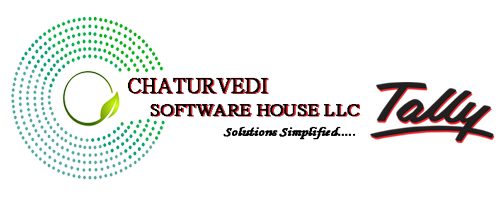
6 Business Processes you can Automate
In our previous blog site, we had gone over 5 things you need to keep in mind while determining when is the correct time to automate your company. In case, you have made a decision to automate your business and also for that reason end up being extra efficient, you would clearly aspire to understand how to deal with it. However before you enter into automating your organization, we would request you to take a go back, and also think of– what to automate– simply put, which are business procedures worth automating.
Broadly speaking, any kind of company, irrespective of segment or dimension, have mainly 6 business procedures:
- Purchase Cycle & Sales Cycle
- Running Expenses Management
- Receivables and also Payables Management
- Cash Flow and also Funds Flow
- Stock Management
- Periodic Statutory Compliance
In our following couple of blog sites, we will try to recognize exactly how to come to be reliable in each of these processes, and how automating them might aid you. But prior to we do that, lets swiftly undergo each of these 6 company procedures, to recognize exactly how each of them is linked to your company development.
Things to Automate — 6 organization processes to concentrate on
The Indian Economy is a growing economic situation, which has actually embraced some advanced tax obligation reforms in 2015. In such an environment, it is a given that an SME will have the cravings, capacity, and agility to grow, much more swiftly than larger gamers. One means to unlock growth is to eliminate inadequacies in the following areas:
Purchase Cycle & Sales Cycle
The Purchase Cycle is the procedure of just how you get as well as handle products and also solutions for your company. In case you are a supplier, it will have to do with obtaining raw materials needed for making a product; in case you are an investor, it will certainly have to do with obtaining goods for profession; in case you are a service provider, it will certainly be about acquiring materials required to provide a solution. It begins with putting a purchase order with your supplier and also finishes with you making the settlement for the exact same after the order is met.
On the other hand, the Sales Cycle is the monetary lifeblood for your company. It basically establishes just how rapidly an invoice or an order from a client is equated right into money in your financial institution. Furthermore, it also determines the experience, perception and also value add of the goods or solution you are offering to your customer.
Running Expenses
There are a number of expenses, you need to be handling while performing the everyday activities of your company. All these tasks are not directly associated with your core business task, state– production, trading or services– but are critical to maintaining your organization running, as well as hence are classified as operating costs. Popular examples of general expenses include payroll, sales payments, fringe benefit, conveyance, amortization, devaluation, rent, repair services and so on
Receivables and also Payables Management
Tracking your organization outstandings, is extremely critical, as it impacts your cash flows. On one hand, are your receivables– in which you are anticipated to extend credit ratings to your customers to preserve great organization partnerships; on the other hand, are your payables– in which you are anticipated to compensate in time, in order to preserve your credit rating merit. Both receivables and also payables need to be taken care of smartly so that you are never ever in any type of cash crisis.
Cash Money & Fund Flow Management
Fast measures of your service efficiency are– cash flow & fund flow. Capital is the difference in the amount of money available at the start of a period (essentially, your opening balance) as well as the amount of cash at the end of that period (your closing equilibrium). In case your closing balance is greater than your opening equilibrium, you are claimed to have a positive cash flow, and also if it is the contrary, you are stated to have a negative cash flow.
Funds Flow, on the other hand, is a much more comprehensive view of your organization, as it looks for to evaluate the factors for adjustments in your monetary placement. It handles rise or decrease in your current properties or present responsibilities. Simply put, your fund’s stream declaration tallies the funds produced from different sources with numerous uses to which they are placed– which in turn influences your working capital.
Inventory Management
In case your business deals with inventory, you will undoubtedly be concerned regarding maintaining a maximum quantity of stock in any way moments– which’s where inventory monitoring steps in. The objective of stock management is to supply undisturbed production, sales, and also/ or client service degrees, at the minimal cost possible. This is something, which needs to be very closely tracked, as an absence of inventory can result in lost sales for you, whereas an unwanted of stock and raise your expenses unnecessarily.
Regular Statutory Compliance
Last however not the least, adhering to GST and various other statutory norms are essential for organizations in India. As you may have undoubtedly picked up in the last one as well as a half years of GST, staying compliant needs valuable job time, sources as well as continuous surveillance to avoid charges.
Now that we have actually invested some time on the 6 main procedures of your organization, you should be able to see just how delicately each of them is linked to your company development. Actually, there is a chance for you to become efficient in each of these service procedures– and over our following few blog sites, we will certainly try to recommend you some ways in which you can seek the aid of innovation to unlock additional growth for your company.
ARE YOU GST READY YET?
Prepare yourself for GST with Tally.ERP 9 Release 6
